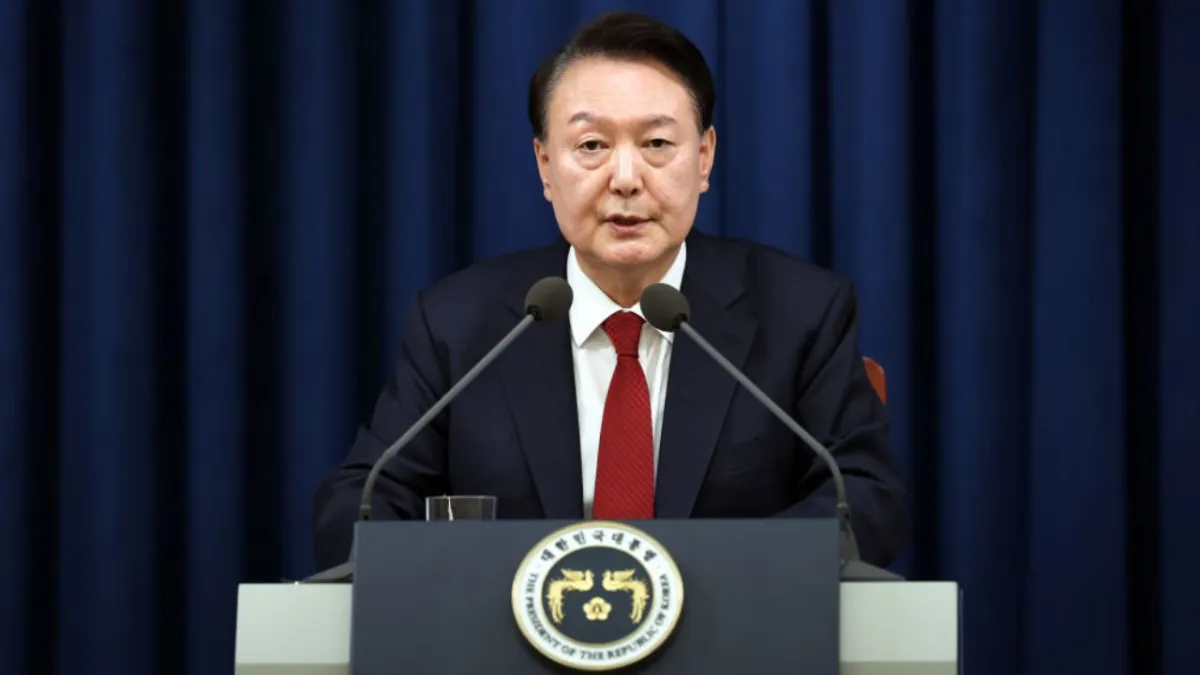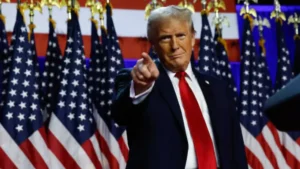
The Parliament of South Korea approved today, Saturday, the dismissal of the president, Yoon Suk-yeol, for having declared martial law on September 3 and did so with the support of deputies from the president’s own party.
The 300 deputies of the National Assembly (Parliament) participated in the process, with the result of 204 votes in favor of the motion presented by the opposition to remove Yoon, 85 against, three abstentions and eight invalid ballots.
To approve the motion, at least 200 votes in favor were necessary to achieve a two-thirds majority in the chamber and, although the vote is secret, and at least 12 deputies from the conservative and ruling People’s Power Party (PPP) have had to support the dismissal, since the opposition parties have a total of 192 seats.
(Read also: Crisis in South Korea: former minister tried to take his own life and the presidential office is searched)
The uncertainty surrounding the result remained until the end, with the PPP holding a closed-door meeting for hours to establish an official position and the meeting concluding minutes before the start of the vote with the announcement that the party would not officially support the motion.
Getty Images
It is clear after knowing the scrutiny that not all seats in the party – seven had already publicly said that they would vote in favor of ousting Yoon – have voted in accordance with that official position.
After the count, Yoon has been immediately disqualified and the Prime Minister of South Korea, Han Duck-soo, now assumes the interim head of State and Government. waiting for the Constitutional Court to determine within a maximum period of 180 days whether or not the president violated the Magna Carta when he declared martial law on December 3.
If the Constitutional Court determines that this was the case, Yoon would be the second sitting president to be disqualified in democracy in South Korea after The conservative Park Geun-hye was also removed from power and imprisoned in 2017 for a complex corruption plot.
The liberal Roh Moo-hyun was also impeached by Parliament in 2004 for an alleged violation of electoral law, although South Korea’s highest judicial body ruled two months in favor of reinstating him as president.
Outside the National Assembly in Seoul, thousands of people gathered to demand Yoon’s dismissal have shown their joy upon learning the result of the vote.

Getty Images
(Read also: Martial law South Korea: what is it and why did Yoon Suk-yeol order it and hours later lift it? )
Who is Yoon Suk-yeol?
In two years, Yoon Suk-yeol has gone from being perceived as a figure who executed those who abused power as a prosecutor, to be seen as a leader whose arrogance and paranoia have increasingly isolated him from the public and his own party.
Born in 1960 in a wealthy home in Seoul, he attended middle school and high school at the Choongam school, a private center in the capital that would play a key role in his last days as president.
After graduating in Law from Seoul National University, in 1994 he began a career in the prosecutor’s office full of cases in which he tried to bring down figures close to different South Korean presidents, the director of the National Intelligence Service (NIS) or the then president. of Hyundai Motors, Chung Mon-koo.
In 2016, he was chosen to head the team that investigated conservative president Park Geun-hye for the corruption plot involving Samsung leader Lee Jae-yong. and it ended with both of them in jail and the president removed, just like him today.
Such a resume pleased Park’s successor, the liberal Moon Jae-in, who appointed him attorney general in 2019.
From that position he dismissed the Minister of Justice, Cho Kuk, for corruption, earning the enmity of the then ruling Democratic Party (PD).
Source: https://www.noticiascaracol.com/mundo/parlamento-destituye-a-yoon-suk-yeol-como-presidente-de-corea-del-sur-por-declarar-ley-marcial-cb20


